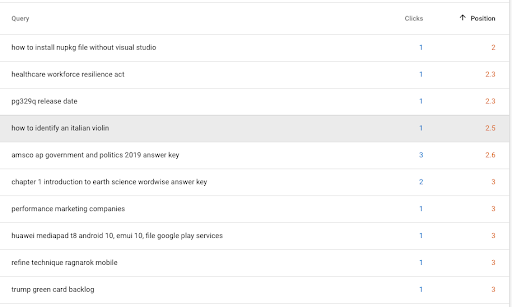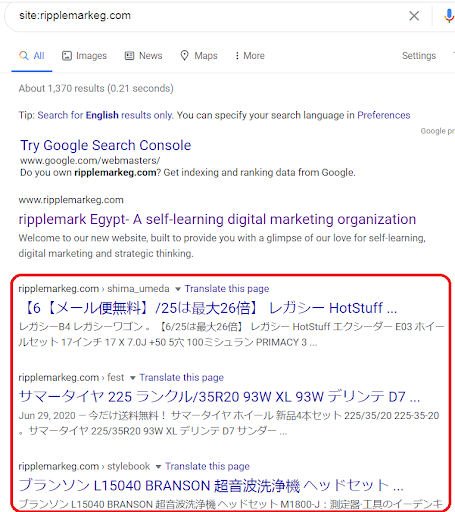
As a website owner or administrator, one of the most frustrating things that can happen is discovering that your site has been hacked. One particularly insidious type of hack that has been on the rise in recent years is known as the Japanese Keyword Hack. In this post, we’ll explain what the Japanese Keyword Hack is, why it’s important to fix it, and provide a comprehensive guide to help you eliminate it from your site.
What is the Japanese Keyword Hack?
The Japanese Keyword Hack is a type of hack in which a malicious actor gains unauthorized access to your website and injects Japanese keywords and phrases into your site’s content, meta descriptions, and title tags. These keywords are typically related to online gambling, pharmaceuticals, or other spammy topics.
The goal of the hack is to manipulate search engine rankings by making your site appear to be more relevant for certain search terms. The attacker hopes to generate traffic to their own site by directing users to your site through search engine results.
The Japanese Keyword Hack can be difficult to detect, as the injected content may be hidden from regular site visitors but still visible to search engine crawlers. This can result in your site being penalized by search engines, which can lead to a decrease in organic traffic and, ultimately, harm your online reputation.
Why is it important to fix the Japanese Keyword Hack?
Fixing the Japanese Keyword Hack is crucial for several reasons.
First and foremost, it helps to protect your site’s reputation and integrity. If your site is compromised by a hack, it can result in a loss of trust from your users and potential customers.
Additionally, the Japanese Keyword Hack can harm your site’s search engine rankings and organic traffic. Search engines are becoming increasingly sophisticated in their ability to detect and penalize sites that use spammy tactics to manipulate rankings. If your site is found to be using these tactics, it can result in a significant drop in organic traffic, which can be difficult to recover from.
Finally, fixing the Japanese Keyword Hack can help prevent future attacks. Once your site has been compromised, it may be more vulnerable to future hacks and attacks. By eliminating the Japanese Keyword Hack, you can help to prevent future attacks and keep your site safe and secure.
How to scan a site for a Japanese Keyword hack?

The Japanese Keyword Hack can be a difficult hack to detect, as the injected content may be hidden from regular site visitors but still visible to search engine crawlers. However, there are a few common signs and symptoms that may indicate that your site has been compromised. In this post, we’ll explore the symptoms of the Japanese Keyword Hack and how to identify if your website is hacked.
Common Signs and Symptoms
Here are a few common signs and symptoms of the Japanese Keyword Hack:
- Unusual Search Engine Results: One of the most common symptoms of the Japanese Keyword Hack is seeing unusual search engine results when you search for your site’s name or relevant keywords. The search engine results may include spammy or irrelevant content that has been injected into your site.
- Increased Bounce Rate: If you notice a sudden increase in your site’s bounce rate, it could be a sign that your site has been hacked. This is because the Japanese Keyword Hack often results in the injection of irrelevant content, which can cause visitors to leave your site quickly.
- Unusual Traffic Patterns: Another symptom of the Japanese Keyword Hack is seeing unusual traffic patterns in your site’s analytics. This may include a sudden increase in traffic from countries where you don’t normally receive traffic, or an increase in traffic to specific pages or posts that have been injected with spammy content.
- Suspicious Links: If you notice any suspicious links on your site that you didn’t create, it could be a sign that your site has been hacked. These links may lead to spammy or irrelevant content.
How to Identify if Your Website is Hacked?
Now that we’ve explored the common signs and symptoms of the Japanese Keyword Hack, let’s look at how to identify if your website is hacked. Here are a few steps you can take:
- Use a Website Security Tool: One of the easiest ways to identify if your site has been hacked is to use a website security tool. There are several free and paid tools available that can scan your site for any suspicious code or files.
- Check Your Site’s Source Code: Another way to identify if your site has been hacked is to check your site’s source code for any suspicious code or files. Look for any Japanese keywords or phrases that have been injected into your site’s content, meta descriptions, and title tags.
- Monitor Your Site’s Analytics: Keep an eye on your site’s analytics and look for any unusual traffic patterns, such as a sudden increase in traffic from countries where you don’t normally receive traffic.
By taking these steps, you can effectively identify if your website has been hacked and take the necessary steps to eliminate the Japanese Keyword Hack and prevent future attacks.
Causes of Japanese Keyword Hack
The Japanese Keyword Hack is a type of SEO spam that has been increasingly popular in recent years. It’s a form of hacking that injects Japanese keywords and phrases into a website’s content, meta descriptions, and title tags. In this post, we’ll explore the causes of the Japanese Keyword Hack, how websites get hacked, and why this type of hack is so popular.
How Websites Get Hacked?
Websites can get hacked in a variety of ways, including:
- Weak Passwords: If a website’s password is weak or easily guessable, it can be easily compromised by hackers.
- Outdated Software: If a website’s software is not up to date, it can be vulnerable to security exploits that can be used to hack the site.
- Malicious Code: Hackers can inject malicious code into a website’s files, which can then be used to compromise the site.
- Social Engineering: Hackers can use social engineering techniques to trick website owners or administrators into giving them access to the site.
Why Japanese Keyword Hack is Popular?
The Japanese Keyword Hack is a popular form of SEO spam because it allows hackers to inject their own content into a website without the site owner’s knowledge. This content is usually designed to boost the ranking of other sites in search engine results pages (SERPs). Here are a few reasons why the Japanese Keyword Hack is so popular:
- Easy to Implement: The Japanese Keyword Hack is relatively easy to implement, even for novice hackers. All they need to do is inject Japanese keywords and phrases into a website’s content, meta descriptions, and title tags.
- Hard to Detect: The Japanese Keyword Hack can be difficult to detect, as the injected content may be hidden from regular site visitors but still visible to search engine crawlers.
- Boosts SEO: The injected content is usually designed to boost the ranking of other sites in search engine results pages (SERPs). This can lead to increased traffic and revenue for the hackers.
- Low Risk: The Japanese Keyword Hack is a low-risk form of hacking, as the hackers don’t need to gain access to the website’s backend or steal any sensitive information. This makes it an attractive option for hackers who want to stay under the radar.
How to Fix Japanese Keyword Hack? Step-by-Step Guide
Google’s Take on Japanese Keyword Hack: How it Affects Search Results and How to Request a Review?
Google takes the Japanese Keyword Hack seriously and takes measures to protect its users from hacked websites. In this post, we’ll discuss how the Japanese Keyword Hack affects search results and how to request a review from Google.
How the Japanese Keyword Hack Affects Search Results?
The Japanese Keyword Hack can have a negative impact on your website’s search engine ranking. When Google detects that a website has been hacked and is displaying spammy content, it may remove the website from its search results or flag it as potentially harmful to users.
If your website has been hacked and you’re displaying spammy content, it’s important to take steps to fix the issue as soon as possible. This will help prevent your website from being penalized in search results and potentially losing traffic and revenue.
How to Request a Review from Google
If your website has been hacked and you’ve cleaned it up, you can request a review from Google to have your website reevaluated for search results. Here’s how to do it:
- Sign in to your Google Search Console account.
- Navigate to the Security & Manual Actions section.
- Click on “Manual Actions”.
- If there’s a “Hacked Content” manual action listed, click on “Request a Review”.
- In the “Request a Review” dialog box, explain what actions you’ve taken to fix the issue and prevent it from happening again.
- Click on “Submit Request”.
After you’ve requested a review, Google will evaluate your website to ensure that it’s clean and safe for users. If your website passes the review, it will be reindexed and may start appearing in search results again.
